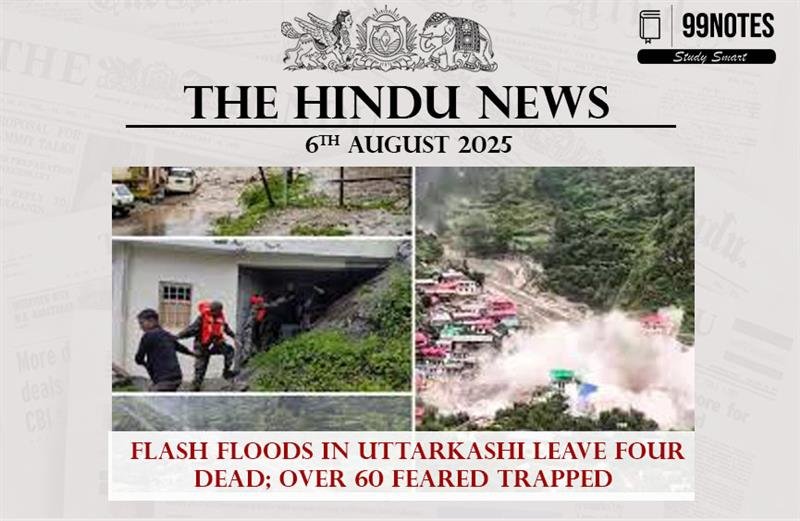07 August 2025: Indian Express Editorial Analysis
1. Punjab Govt’s land pooling policy for Aerotropolis: HC seeks Centre’s stand
(Source: Page 3, The Indian Express)
| Topic: GS Paper 2 (Governance), GS Paper 3 (Environment, Infrastructure) |
| Context |
|
What is the Land Pooling Policy?
-
A land pooling mechanism allows governments to consolidate small landholdings for infrastructure projects by offering compensation in the form of developed plots or monetary benefits.
-
It is seen as an alternative to direct land acquisition, which often leads to farmer resistance.
The Aerotropolis Project:
-
A major urban development planned around a new international airport near Ludhiana.
-
It includes residential, commercial, and industrial clusters, making it an economic hub.
-
5,350 acres of land across eight villages to be acquired.
Legal and Environmental Issues Raised:
-
Petitioners argue that:
-
The project lacks Environmental Impact Assessment (EIA) as required under the 2006 EIA Notification.
-
Farmers were coerced into surrendering land, especially under pressure of development.
-
The land pooling notification violates the constitutional right to fair compensation.
-
Constitutional & Legal Dimensions:
-
Article 21 (Right to Life): Includes right to a clean environment.
-
Article 300A: Right to property and fair compensation.
-
Environmental clearance is mandatory for large-scale infrastructure under EPA, 1986 and EIA 2006 norms.
Governance and Policy Implications:
-
The case reflects the tension between development and environmental governance.
-
Raises questions about:
-
Due process in land acquisition
-
Transparency in land pooling
-
Sustainable urban planning practices
-
Way Forward:
-
Any mega-infrastructure policy must be environmentally and socially inclusive.
-
Need to strengthen institutional checks on state-led land development schemes.
-
State governments should follow due environmental procedures to avoid legal roadblocks and ensure sustainable outcomes.
| Practice Question: Land pooling has emerged as a preferred alternative to land acquisition in India. Critically evaluate its implications for sustainable urban development, with reference to recent controversies. |
Read more – 06 august 2025 : Indian Express Editorial Analysis



